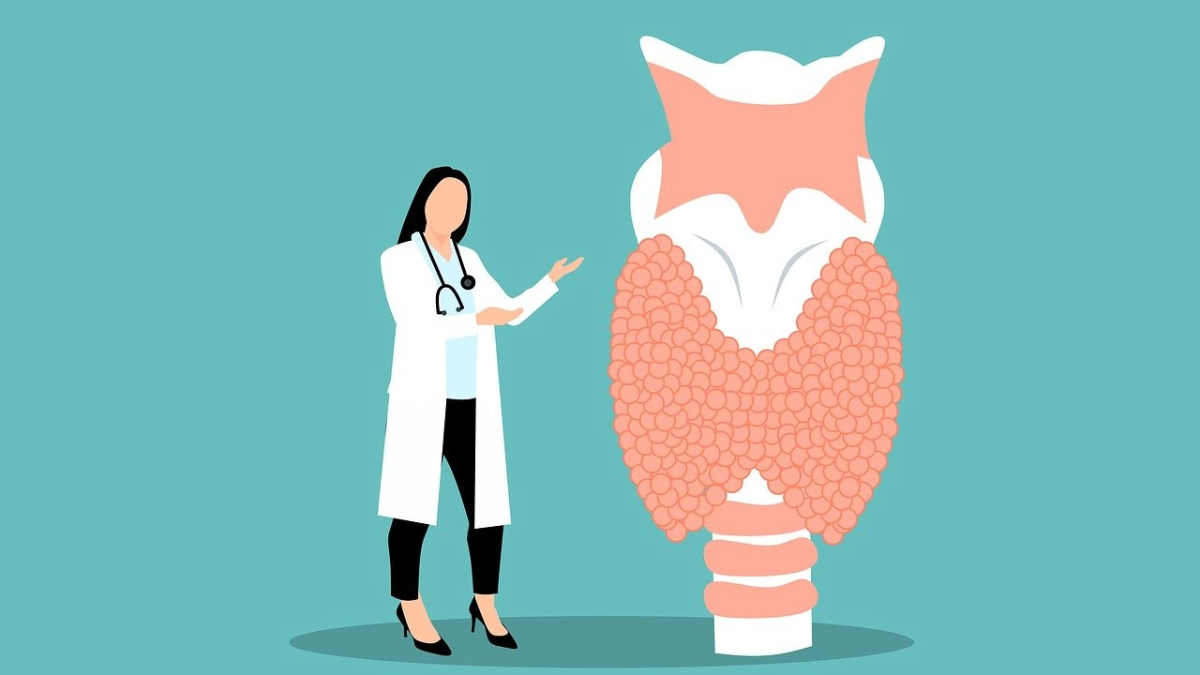Exploring Thyroid Health: Disorders, Signs, and Solutions That Matter
Updated: March 24, 2025

The thyroid is a small gland that helps control how the body uses energy and grows, needing iodine to make important hormones. More people are learning about it and getting checked, which impacts many lives and keeps a constant need for things like supplements, testing tools, and hormone treatments. Knowing how it works, what can go wrong, and how to fix it helps those staying healthy and those supplying what's needed.
What Is the Thyroid and How Does It Work?
The thyroid is a small, butterfly-shaped organ at the front of the neck, sitting below the Adam's apple and wrapping around the windpipe. A thin strip called the isthmus links its two lobes. This gland controls many energy processes and supports growth across the body. It takes iodine from food to make hormones, mainly thyroxine or T4. Once in the bloodstream, a small amount of T4 turns into triiodothyronine, known as T3, the more active hormone driving cell function. The brain keeps this in check through a feedback loop. When hormone levels dip, the hypothalamus releases thyrotropin-releasing hormone (TRH), prompting the pituitary gland, near the brain's base, to release thyroid-stimulating hormone (TSH). TSH then tells the thyroid to produce more T4. Problems with the pituitary or hypothalamus can throw this off, sparking thyroid issues and a growing call for testing and treatment options.
Types of Thyroid Disease
Thyroid disorders come from uneven hormone levels or changes in the gland's structure, each tied to specific health and supply needs.
Hypothyroidism
Hypothyroidism occurs when hormone production falls short, slowing down body functions. It's common to keep hormone pills and health aids in steady use.
Hyperthyroidism
Hyperthyroidism happens when the thyroid makes too much hormone, speeding up how the body works. It drives a need for medicines and tools to keep it in check.
Goiter
Goiter means an enlarged thyroid gland linked to hypothyroidism, hyperthyroidism, or normal function. Its size often boosts interest in scans and supplements.
Thyroid Nodules
Thyroid nodules are lumps or growths in the gland from cysts, tumors, or cancers. They create a small but key market for ultrasound machines and testing kits.
Thyroid Cancer
Thyroid cancer, more frequent in women, starts when gland cells turn cancerous, with types varying by cell origin. It feeds a need for special treatments and checkup supplies.
Symptoms and Causes of Hypothyroidism
Hypothyroidism brings signs like unexpected weight gain, tiredness, constipation, heavy menstrual bleeding, hair loss, feeling cold easily, and a slow heart rate. These can build up slowly, often leading people to try energy boosters and hair products and see a doctor.
Several issues can cause hypothyroidism. Hashimoto's thyroiditis, an autoimmune condition, inflames the gland, damaging its hormone output. Acute and postpartum thyroiditis also trigger inflammation, sometimes short-term. Thyroid hormone resistance, where cells ignore hormones, plays a role too. Surgery or radio ablation to remove the gland, often for other conditions, stops production entirely, sustaining a market for replacement therapies and autoimmune support.
Diagnosis of Thyroid Disease
Diagnosis begins with blood tests checking T3, T4, and TSH levels. High T3 and T4 signal hyperthyroidism, low levels point to hypothyroidism and normal T3 and T4 with low TSH suggest a milder form. TSH is the most telling marker, but if TRH from the hypothalamus is lacking, results may mislead. A TRH stimulation test clarifies those cases, measuring TSH 30 and 60 minutes after TRH is given. Free T3 and T4, the active unbound forms, offer a direct look, with T4 preferred since T3 can stay normal in hypothyroidism. Ultrasound scans check if nodules or goiters are solid or fluid-filled, helping spot cancer risks. This fuels growth in portable ultrasound machines and lab test kits for early detection.
Treatment of Thyroid Disease
Treatment varies by condition. Hypothyroidism uses thyroxine or levothyroxine, taken daily as a pill, with effects building over weeks. Steady sales reflect its prevalence, while transient causes like postpartum thyroiditis may fade alone, and iodine shortages improve with supplements. Hyperthyroidism leans on drugs like propylthiouracil, carbimazole, or methimazole to curb hormone output. Radioactive Iodine131 destroys overactive tissue, taken up by the gland over time. Surgery, like transoral thyroidectomy, removes part or all of the gland, risking nearby nerves or glands. Total removal leads to hypothyroidism, requiring lifelong hormone pills. Suppliers of these therapies and wellness products find a reliable market in these approaches.
Final Thoughts
People with thyroid disorders have accepted treatments that include hormone medicine or special diets to make daily activities easier. Small business suppliers maintain a steady market demand for products such as iodine supplements hormone pills and wellness items through their sales to B2B customers. Everybody gets better results from well-established ways to properly manage this gland, which serves an essential function.